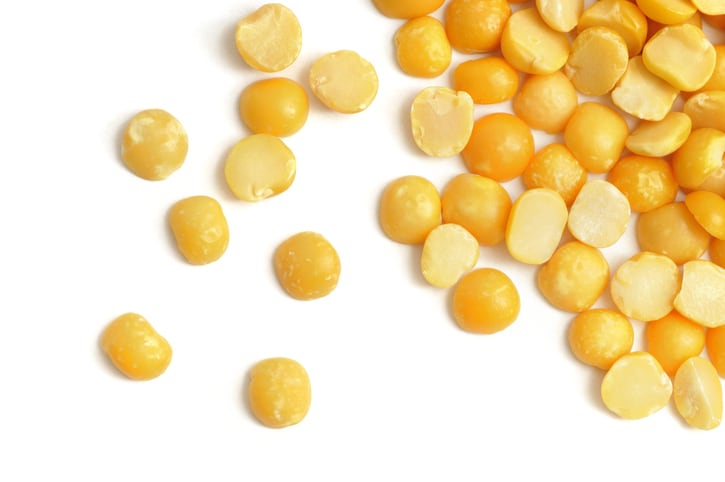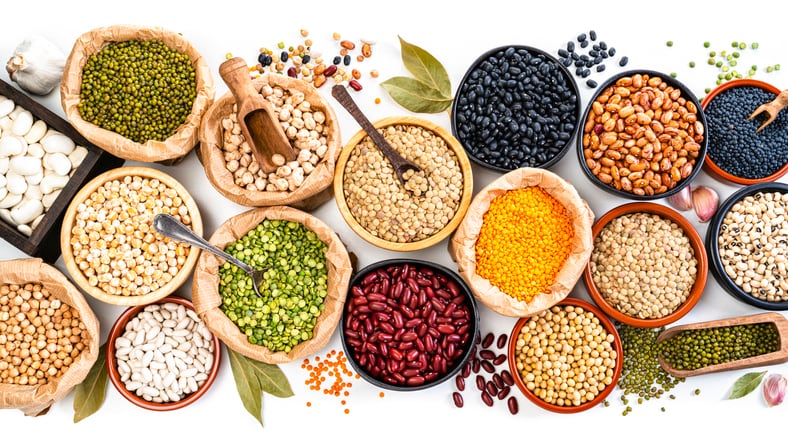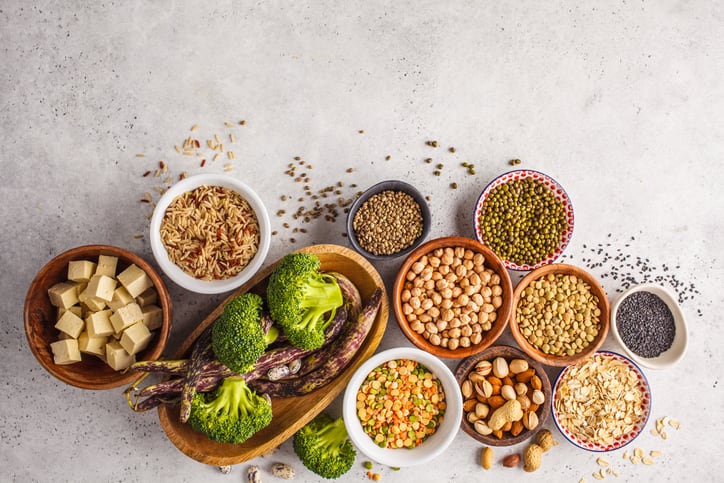Roquette, which opened the world’s largest pea protein factory in Canada last year and which counts plant-based meat producer Beyond Meat among its clients, is advising its customers to prepare for a spike in pea prices.
Supply has been hit on various fronts, it said. Canada, the largest pea producing region in the world, recorded a drop of 45% in its production and pea prices have drastically increased by 120% in comparison to last year, after an exceptional drought this summer in Canada, believed to be the worst in over a century.
Europe has also suffered from low yields and in France, another large pea producing country, the crop has been severely damaged by the wet weather during the harvest.
In the context of a very strong market demand for pea protein, which is a key ingredient in many new plant-based products, the sector is dealing with the consequences of this shortage of peas. The dramatic increase in prices will inevitably lead to costs being transferred to customers, Roquette reported.
Jeremy Burks, Senior Vice President of Plant Proteins at Roquette said: “We know our customers are watching the raw material prices and availability closely and they can rely on our huge investments to shorten the supply chains and help them mitigate some of this significant cost increase.”
Roquette’s production sites include Portage-la-Prairie (Manitoba, Canada), the largest pea protein plant globally which starts producing in 2021, and Vic-sur-Aisne (France), which is the largest pea protein plant in Europe.
Roquette is working to build a secure sourcing and delivery strategy from farmers to customers, it added. “Over several years, we’ve invested in breeding new varieties of peas, on farming methods and our agronomists have worked with farmers to ensure a reliable and plentiful supply of high-quality peas,” explained Burks. “The short term is a serious challenge, but we are making certain that customers can look forward with confidence.”
Supplier Ingredion also warned of rising pea prices. But added the situation gave manufacturers license to reformulate.
“Globally pea prices have risen to reach a record high,” said Severine Bensa, Ingredion Plant Based Protein Platform Lead EMEA.
“The worst drought in North America has impacted many crop yields negatively. With the demand continuing to be strong this has led to a rapid escalation in prices which means base commodities increased by >100% in just a few weeks. Europe hasn’t been affected by droughts but strong demand has led to record high pea prices (+40%) driven by high wheat, corn and soybean meal prices.”
She added there will be less availability for the short term. “But moving forward, market fundamentals should rebalance and stabilize the current volatility as high prices will lead to higher average crop sizes.
Yes, there will be a rise in plant protein prices in 2022 due to the situation but it is the opportunity for manufacturers to reformulate their recipes to maintain an affordable price for consumers.”
Yellow pea is the fastest-growing source of protein for plant-based meat alternatives, driven by a strong consumer demand for healthier nutrition and sustainable food.
Moving Mountains, Meatless Farm Co and Beyond Burger are among the start-ups using it for their plant-based products.
The penetration of pea fibre as an ingredient in new food and beverage products has nearly doubled in the last five years, according to the Mintel Global New Product Database (GNPD).
Main categories of pea-related ingredients are: meat substitutes, nutritional and meal replacement beverages, snack bars/cereal bars/energy bars.
Pea ingredient products with vegan/no animal ingredients, high/added protein,, plant-based and environmentally-friendly packaging are rapidly growing in their positioning claims, Mintel noted.
Pea fibre not only adds fibre to products, it also helps improve moisturization. Pea protein is considered to be a complete plant protein because it contains all nine amino acids. This is in contrast to many other common plant proteins, such as almonds and rice, which contain all nine amino acids but are too low in lysine to be complete proteins
On top of the commodity spikes, a global energy crisis means natural gas prices are at seven-year highs in the US and record highs in Europe and Asia.
In August, the Commodity Price Indices compiled by Germany's Hamburg Institute of International Economics (HWWI) for energy raw materials rose by 2.3% compared to the previous month, with +42.5 percent above the previous year's value, the index remains at a high level.




